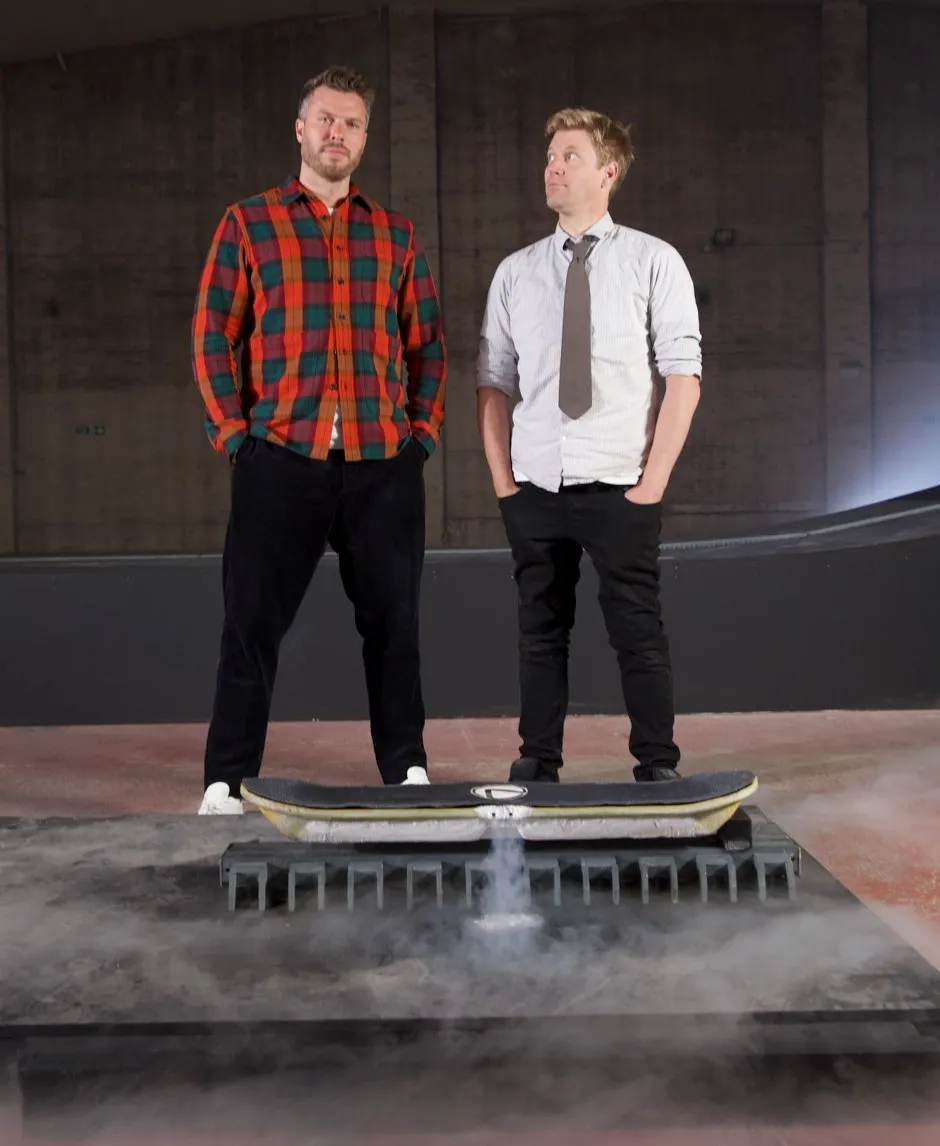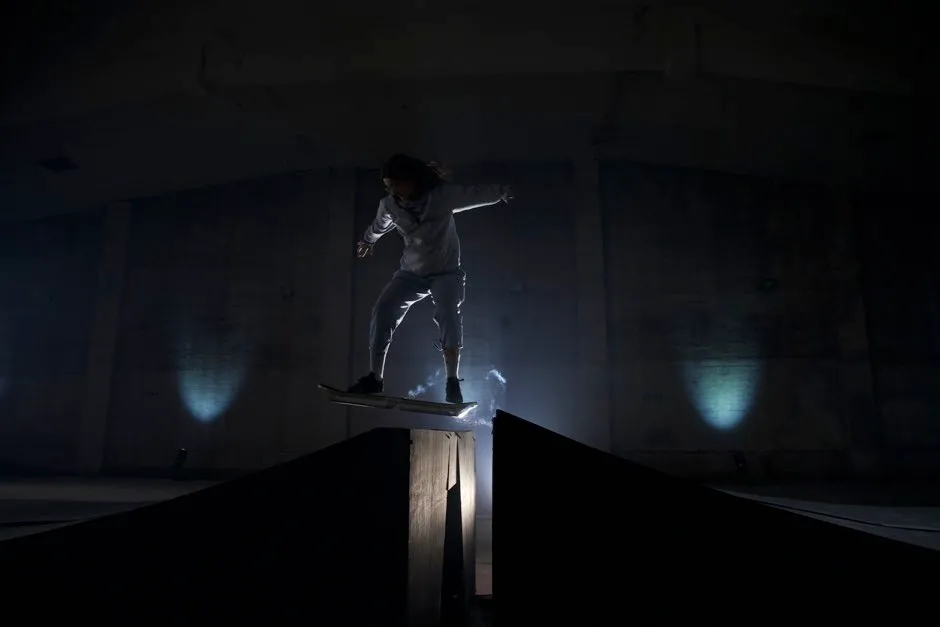Your new series is called The Edge of Science, what is it all about?
I’ve always been most fascinated by the bits of science that might be politely described as ‘fringe’ – those endeavours that are slightly sneered at by other scientists; the research that sparks argument and derision. Because if the history of scientific advance tells us anything, it’s that those are the areas where novelty and progress often spring from.
So in The Edge of Science I’m exploring those outer reaches, to challenge everything we think we know about the world by putting some of the wackiest sci-fi tropes to the ultimate test, all using cutting edge science. I’m talking invisibility, telepathy, levitation – things that we all instinctively understand but assume aren’t possible. People are in for some surprises…
In the first episode you team up with Colin Furze in an effort to levitate. He has already made a hover bike, is that not levitation?
We were quite specific about our definition of levitation – Colin’s hoverbike is clearly amazing (if a death trap), but it’s flying rather than levitation. Jetpacks fall into that category too.
We ruled out moving parts or mechanical support. It felt to us that true levitation would involve hovering above the ground, and probably in eerie silence… Easier said than done, of course!

You see some really cool ways of levitating things in the show, which was your favourite?
Partly because it was the first type I saw, but I was blown away by acoustic levitation.
Even though the objects being levitated are small, seeing them just sitting there, mid-air, is extraordinary. Your mind can’t really compute it – you assume that it must be a trick. But it isn’t.
The objects are sitting in the nodes of a stationary soundwave – sandwiched between two beds of high pressure. What makes it even weirder is that even though the loudspeakers creating these waves are very loud – louder than a jet engine – because it’s in the ultrasound range, you can’t hear a thing.
The potential applications of this technology for medical procedures are huge.
Better than that, I broke a world record! Largest object levitated in a ‘tractor beam’. Straight to the top of my CV.
Read more interviews with people doing cool things with science:
- Eline van der Velden: “Romantic science comedies are the dream”
- Chris Packham: “I wouldn’t spend 10 minutes shouting at Donald Trump… I’d spend 10 minutes trying to understand him”
- Who says you can't polish a nerd?
Colin’s creations push the boundaries of safety, so were you at any point a little afraid of what he would have in store for you?
Of course! I’ve watched enough of Colin’s videos to know that he is unhinged. Entertaining, but unhinged.
Without giving too much away, he helped build the track on which I was going to attempt levitation, and when I arrived and saw it my first thought was – why is there a jump in there?? I definitely did not ask for that.
Previously in his shed he’d been freaking out all the BBC health and safety people by handling liquid nitrogen without any gloves on. He is a law unto himself!

What’s it like to levitate (and what is actually happening)?
It’s honestly hard to put into words. I’ll try though. It feels a bit like standing on a very unstable skateboard, and your brain can’t fathom what is happening. Of course you can’t see that there is clear air between you and the track, so it assumes that you must be balancing on something (and not locked into a super-strong magnetic field, which is pretty counter-intuitive).
It’s only really the reactions of everyone else that gives it away – when they’re celebrating and telling you that you are indeed levitating.
One of my favourite elements of the whole experience is that whilst we understand and can observe the effect – the quantum levitation of the superconductor – exactly what is happening at a quantum level isn’t fully understood. The theory isn’t totally there. So it retains an air of mystery…
There are some really cool scientists in the video, who is your biggest science inspiration?
I hope he doesn’t read this, but my friend and colleague Dr Michael Brooks. I was aware of his work well before I met him because he wrote my favourite popular science book 13 Things That Don’t Make Sense.
He has such a genuine enthusiasm for science, tinged with just the right amount of cynicism, and an uncanny ability to explain unbelievably complex ideas and theories in accessible and enjoyable terms. We now do a podcast together – Science(ish), feel free to check out the extensive back catalogue – and have written a couple of books (Hollywood Wants To Kill You is the most recent).
I am, I think the phrase is, ‘riding on his scientific coat-tails’.
How did you get into presenting science and what advice would you have for anyone who likes your videos to get involved?
I’ve been a TV presenter for 15 years, and have done a real variety of programming. But as much as I kept trying, I could never persuade anyone to let me do science on telly.
Then I realised that actually, the best thing would be to do it under my own steam. The podcast, and now the books, have gone some way to convincing channels that I am a good fit for science stuff. It’s fair to say that I wouldn’t be fronting The Edge of Science if I hadn’t sat down with a mic and chatted with Brooksy.
Although to be honest, I’ve retrofitted that narrative. There was no grand plan and the reason I started the podcast, and have continued with it, is that I genuinely love doing it.
So I suppose that’s my advice – you don’t have to wait for someone to give you permission, you can just get on with it. Start a podcast, a blog, a YouTube channel. Find a platform that lets you demonstrate your passion for science.


